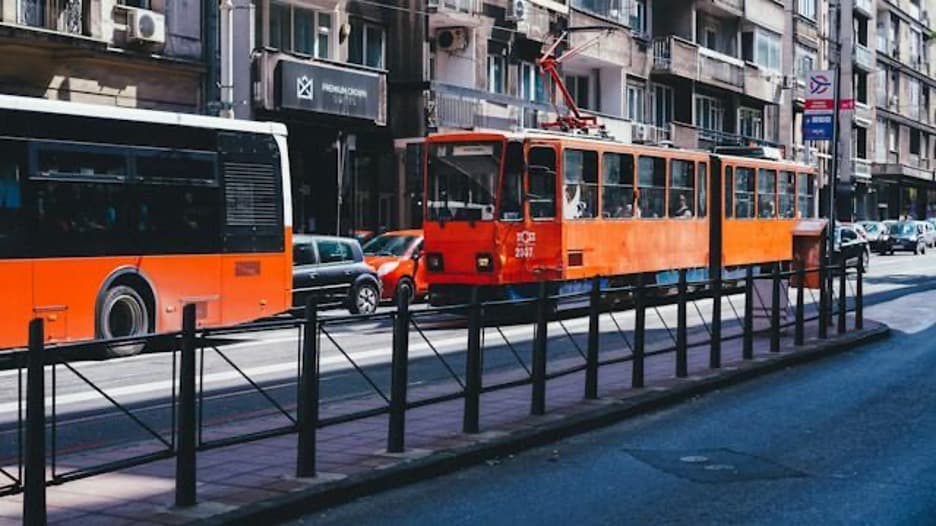
If you’ve visited Serbia before, you know that it’s full of nature, the food is good, and people are generally kind. Also, rakija packs quite a punch. But visiting is one thing — living in Serbia is another thing entirely.
So, in case you’re thinking of moving to this Balkan country (or if you’re simply curious), this article will lay out the deets and list the good and not-so-good sides of living in Serbia. Let’s begin!
Before listing the pros and cons, let’s answer some of the key questions. No, it’s not about where to buy rakija — you’ll learn that by yourself. We’re talking about things you need to know so you can decide if Serbia is a good place to live for you.
The answer is — yes, Serbia is overall a safe country. So, while there, you don’t need to worry about being attacked, kidnapped, or anything similar. In addition, dangerous animals are pretty rare, and unless you go looking for them, you’ll be fine. Admittedly, stray dogs are everywhere, but they are mostly friendly.
However, you should still be reasonably cautious. In practice, that means staying away from sketchy places (especially at night), keeping an eye on your wallet when using public transportation, and not attending football games. Yup, you better avoid those football fans (navijači) at all costs.
Well, this is a question with many answers. For starters, if you’re from a high-income country, you’ll likely find living in Serbia pretty cheap. If we’re talking about locals, though, most of them will tell you living here is crazy expensive. The reasons are low salaries and a high unemployment rate.
Then again, if you’re a digital nomad working for a foreign company, or if you happen to land a high-paying role in Serbia, you’ll be able to live pretty comfortably, or as Serbs would say — kao bubreg u loju (literally: Like a kidney in fat).
Speaking of prices, food and gasoline are quite pricey, especially considering how much most people make a month. However, services are dirt cheap (compared to Western countries). So, while a stake will cost you an arm and a leg, you can have your hair done and fix your teeth for next to nothing.

Well, yeah, they speak Serbian. But what about English? This will mostly depend on where in Serbia you live. In the capital, most people will speak English well enough for a decent conversation. In the countryside, though, not so much.
But as a foreigner, you’re more likely to stay in Belgrade or another large city. If you, however, move to a rural place, head over to our website and work on those Serbian skills.
The short answer is — not very much. To clarify, cities in Serbia still don’t have a subway, not even the capital. Besides, there’s only one high-speed railway (connecting Belgrade and Novi Sad).
The truth is if you’re living outside of the capital, you’ll most likely need a car. In Belgrade, you can use public transportation. But keep in mind that getting from one place to another can take quite a while, especially during the rush hour.
What is nice about the transportation in Belgrade, though, are the trams. They’ll give you a certain sense of nostalgia — plus they are great for exploring the city.

In general, Serbs are friendly, laid-back, fun-loving people. They enjoy partying, good food, and hanging out at cafes for hours. Of course, not everyone is a party animal with an enormous appetite, but hey — there’s no way to answer this question without a bit of generalization.
So, most people value generosity and hospitality and always try to help their friends as well as strangers. If, for instance, your car breaks down, more often than not, someone will pull over and help you out.
Since Serbs put a lot of importance on family, you might be surprised how close they are to their parents and siblings (and relatives). Besides, it’s common for people to live in their parents’ house even in their thirties.
Things can take an especially weird turn if you marry a Serb. Namely, your in-laws might not be very good at respecting boundaries. For instance, they might drop by unannounced — five days in a row. On the plus side, they’ll probably bring you food, and lots of it. Again, not everyone is like this, so you might get lucky and have wonderful in-laws — who knows?
Long story short, public healthcare in Serbia is affordable but not really good. Therefore, it’s better to go to a private clinic if you can afford it.
The reason is that public hospitals are understaffed, and depending on the procedure, it can sometimes take months before you can see a specialist.
To make things worse, some doctors might expect you to give them mito (bribe) in order to treat you well. Although illegal, it’s a common practice. For example, if you’re having a procedure, ‘gifting’ a couple of hundreds (sometimes even thousands) of dollars to your doctor will guarantee a quality service.
On the other hand, private clinics are relatively affordable, and you can schedule an appointment with zero hassle and receive a top-notch service.

Unfortunately, the answer is no. First of all, same-sex marriages aren’t legalized yet. Likewise, gay couples can’t adopt children in Serbia.
When it comes to the general treatment of queer people, that really depends. While you can easily find friends who’ll respect you and love you for who you are, there are also many people who judge others based on their sexual orientation.
All in all, discrimination is still very present, and Serbia has a long way to go in terms of LGBT+ rights.
Finally, it’s time for the pros and cons. Here we go!
Pros | Cons |
✔️ It’s a safe country | ❌ Air pollution |
✔️ Low living costs | ❌ High unemployment rate and low income |
✔️ Many people speak English | ❌ Inefficient transportation |
✔️ People are generous and hospitable | ❌ Not LGBTQ+ friendly |
✔️ Affordable private clinics | ❌ Low-quality public healthcare |
✔️ Delicious food | ❌ Not vegan-friendly |
✔️ Exciting and affordable nightlife | ❌ Cigarette smoke everywhere |
✔️ Beautiful nature |
|
So, what’s the verdict? Is Serbia an absolute hellhole, or is it heaven on earth? Of course, it’s neither — living in Serbia can be great or not so great for you. It all depends on your expectations and priorities. In any case, now you have enough info to decide whether to move there — or to prepare if it’s a done deal.
And if you end up living in Serbia, having some language skills will help you out — big time! So, subscribe to our newsletter and receive Serbian language worksheets twice a week. They are great for self-study, and best of all — they are completely free!
2 Responses